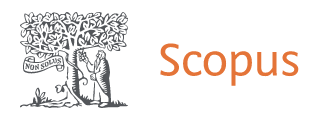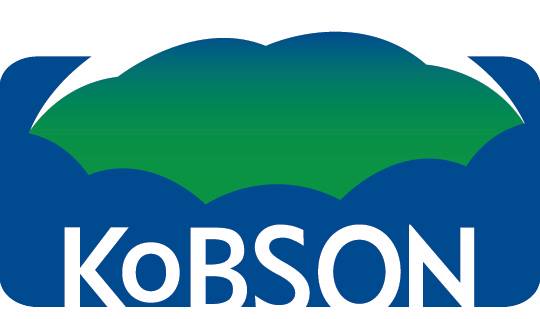DOI: 10.5937/jaes0-40245
This is an open access article distributed under the CC BY 4.0

Volume 21 article 1089 pages: 451-461
In recent years, friction stir welding (FSW) methods have been used to obtain good joints with mechanical and physical process properties. The development of FSW lap joint assembly will expand its use in ahigh number of industrial applications that can benefit from this technology. In this paper a study based on experimental methods were performed on FSW lap joints. The investigation includes the interface morphology and mechanical properties of the joint assembly. Experimental measurements were carried out on micro-hardness; tensile shear test, resulting material flow as well as the effect of flow variation on the obtained mechanical properties of FSW butt lap joints ofaluminium alloy AA3003. The study also presents the effects of different welding parameters on the lap joints assembly structure. It was found thatthe hardness in the welded region is significantly lower with respect to the base material.The fracture analysis shows the characteristics of ductile-brittle mixed fracture.
1. Chen, C.M., Kovacevic, R., (2003). Finite element modeling of friction stirs welding – thermal and thermomechanical analysis, vol.43, no. 13, p.1319-1326.
2. Threadgill,P.L, Leonard,A.J., Shercliff,H.R.,Withers, P.J., (2009).Friction stir welding of aluminium alloys, International Materials. Reviews, vol.54, no 2, p.49-93.
3. Mishra, R. S., Ma Z.Y., (2005). Friction stir welding and processing, Materials Science and Engineering, vol.50, no 2, p. 1-78.
4. Colligan, K., (1999). Material flow behaviour during Friction Welding of Aluminum, Welding. Journal, p. 229-237.
5. Naik, B.S., Chen, D.L., Cao, X.,Wanjara P., (2013). Microstructure and Fatigue Properties of a Friction Stir Lap Welded Magnesium Alloy, vol.44, Metallurgical and Materials Transactions A, doi: 10.1007/s11661-013-17285.
6. Aydin, H., Tutar, M., Yigit, K., Bayram A., (2017). Mechanical Properties of Friction Stir Welded 3003 Aluminum Alloy in Different Welding Conditions, vol.5, International Journal of Mechanical and Production Engineering.
7. Aydin, H., (2010). Quality and Properties of the Friction Stir Welded AA2024-T4 Aluminum Alloy at Different Welding Conditions, Mater. vol.52, Testing-Materials and Components, p. 640-650
8. Balasubramanian, V., (2014). Relationship between base metal properties and friction stir welding process parameters, vol. 480, no. 1–2, Materials Science and Engineering.A, p. 293–299.
9. Elangovan, K.,Balasubramanian, V., (2007). Influences of pin profile and rotational speed of the tool onthe formation of friction stir processing zone in AA2219 aluminium alloy, vol. 459, no. 1–2,Materials Science and Engineering.A, p.7–18.
10. Buffa,G., Fratini, L., Palmeri, D., (2006).On microstructural phenomena occurring in friction stir welding of aluminium alloys, vol.177, no. 1–3, Journal of Materials Processing Technology, p.340–343.
11. Harchouch, Z., Zemri M., A. Lousdad, A., (2019). Analytical Modeling and Analysis of the Matter Flow during Friction Stir Welding, Vol; 297,pp. 1-16, Solid State Phenomena,Trans Tech Publications, Ltd Swittzerland
12. Harchouch, Z.E.A, Lousdad, A.,Zemri, M., Dellal, N. foudilKhelil, F., (2021).Modeling and Simulation based Analysis of the Matter Flow During Friction Stir Welding Process,Vol.54, N°2,Journal Européen des Systèmes Automatisés, April, 2021,https://doi.org/10.18280/jesa.540219
13. Birol, Y.,Kasman, S., (2013). Friction stir welding of twin-roll cast en AW 3003 plates, vol. 19, no.6, Metals and Materials International, p.1259–1266.
14. Birol,Y., Kasman, S., (2013). Effect of welding parameters on the microstructure and strength of friction stir weld joints in twin roll cast en AW Al-Mn1Cu plates, vol. 22, no. 10, Journal of Materials Engineering and Performance, p.3024–3033.
15. Tutar, M., Aydin, H., YuceC., Yavuz, N., Bayram, A., (2014). The optimisation of process parameters forfriction stir spot- welded AA3003-H12 aluminium alloy using a Taguchi orthogonal array, vol. 63, Material and Design.
16. Abdulrehman, M. A., Challoob, S. H., Marhoon, I. I., (2020). Investigation of Mechanical and Numerical Properties of Friction Stir Welding (FSW) for 3003-H14 Aluminum Alloys, In Defect and Diffusion Forum, vol. 398, Trans. Tech. PublicationsLtd, p. 106-116.
17. Merzoug, M., Boulenouar, A., Bouchouicha, B., Serrier, M., Mazari, M., (2018). Effects of welding parameters on fssw: experimental and numerical study, vol.63, no.1, Archives of Metallurgy and Matrials, p. 247-256, doi: 10.24425/118935.
18. D’Urso, G.A., Giardini, C.A, Lorenzi, S.B., Cabrini, M.B., Pastore, T.B. (2017). The Effects of process parameters on mechanical properties and corrosion behavior in friction stir welding of aluminum alloys, Procedia Engineering 183, 17th International Conference Sheet. Metal, SHEMET17, p. 270 –276.
19. Tozaki, Y., Uematsu, Y., Tokaji, K., (2007). Effect of tool geometry on microstructure and static strength in friction stir spot welded aluminium alloys, vol. 47, International Journal of Machine Tools and Manufacture, p. 2230-2236.
20. Klobčar; D., Tušek, J., Skumavc, A. Smolej, A., (2014). Parametric study of friction stir spot welding of aluminium alloy 5754, vol. 53, no.1, METABK, p. 21-24.
21. Badarinarayan, H., Yang, Q., Zhu, S., (2009). Effect of tool geometry on static strength of friction stir spot-welded aluminum alloy, vol. 49, no 2, International Journal of Machine Tools and Manufacture, p.142-148.
22. Rodriguez, R.I., Jordon, J.B., Allison, P.G., Rushing, T., Garcia, L., (2016). Low-cycle fatigue of dissimilar friction stir welded aluminum alloys, vol. 654, Materials Science and Engineering, p.236 - 248.
23. Besel, Y., Besel, M., Mercado, U.A., Kakiuchi, T., (2017). Influence of local fatigue damage evolution on crack initiation behavior in a friction stir welded Al-Mg-Sc alloy, vol. 99, International Journal of Fatigue, p.151-162.







